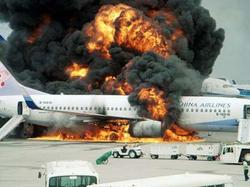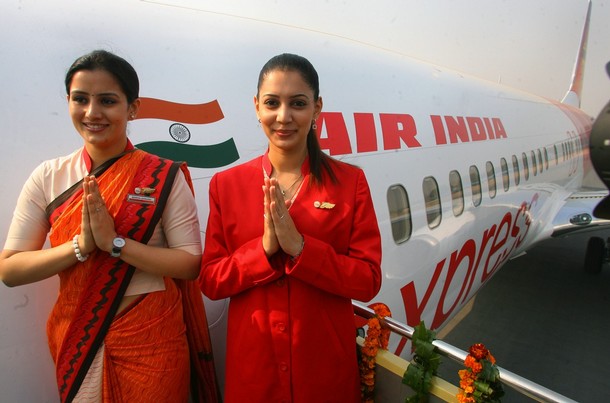 In an interview years ago, the novelist Kurt Vonnegut was asked how he’d like to die. And most of us, I suppose, occasionally play out our own deaths in line with some exciting script. “In a plane crash on Mount Kilimanjaro,” was Vonnegut’s answer. And if you think about it, there’s something evocative about that – a jet getting lost in the fog, smacking into the side of that big Tanzanian mountain. Is it the Kilimanjaro part, or the plane crash part? Or both? You’d be hard pressed to find people who think of airplane crashes as anything but the cold hard triumph of gravity over some hulking contraption, but frankly there’s a certain mystique to some of them. Not a morbid, bloody mystique, but something romantic.
In an interview years ago, the novelist Kurt Vonnegut was asked how he’d like to die. And most of us, I suppose, occasionally play out our own deaths in line with some exciting script. “In a plane crash on Mount Kilimanjaro,” was Vonnegut’s answer. And if you think about it, there’s something evocative about that – a jet getting lost in the fog, smacking into the side of that big Tanzanian mountain. Is it the Kilimanjaro part, or the plane crash part? Or both? You’d be hard pressed to find people who think of airplane crashes as anything but the cold hard triumph of gravity over some hulking contraption, but frankly there’s a certain mystique to some of them. Not a morbid, bloody mystique, but something romantic.
Don’t miss the point, as none of this, of course, means a damn thing to the people who are unlucky enough to be killed, or their loved ones. It’s not the violence that makes the difference – the ascending G-forces or the body count. The mystique is a contextual thing – the event as a whole, and as we come to see it in retrospect. Not just plane crashes, but all disasters. If the Titanic sinking hadn’t had a mystique, it wouldn’t have been a blockbuster love story 80 years later. A boat hits an iceberg and 1200 people die – and somehow we make a love story out of the wreckage? The point here is its the event as a whole that causes trauma and leaves those grim painful memories for the lifetime of those who lost their loved ones.

Since overall number of fatalities is the standard measuring stick, one could argue the World Trade Centre attacks deserve top billing, as indeed some on-line aviation sites have ranked them. But here I am just discussing a few air crashes considering only the air casualties not the people on the ground.
1. March 27, 1977. Two Boeing 747s, operated by KLM and Pan Am, collide on a foggy runway at Tenerife, in Spain’s Canary Islands killing 583 people. The KLM jet departed without permission and struck the Pan Am jet as it taxied along the same runway. Confusion over instructions and a blockage of radio transmissions contributed to the crash.
2. August 12, 1985. A Japan Air Lines 747 crashes near Mt. Fuji after takeoff from Tokyo on a domestic flight killing 520. The rupture of an aft bulkhead, which had undergone faulty repairs following a mishap seven years earlier, caused destruction of part of the airplane’s tail and rendered the jet uncontrollable. A JAL maintenance supervisor later committed suicide, while the president of the airline resigned, accepting full, formal responsibility for the crash and visiting victims’ families to offer a personal apology.
3. November 12, 1996. An Ilyushin IL-76 cargo plane from Kazakhstan collides in midair with a Saudia 747 near Delhi; all 349 aboard both planes are killed. The Kazakh crew had disobeyed instructions, and neither airplane was equipped with collision-avoidance technology.
4. March 3, 1974. In one of the most notorious and gruesome crashes ever, a THY (Turkish Airlines) DC-10 crashes near Orly airport killing all 346 passengers and crew. A poorly designed cargo door had burst from its latches, and the subsequent depressurization caused failure of the cabin floor and impairment of cables to the rudders and elevators. Out of control, the plane slammed into the woods northeast of Paris. McDonnell Douglas, maker of the DC-10, which would see even more controversy later, was forced to redesign its cargo door system.
5. June 23, 1985. A bomb planted by a Sikh extremist blows up an Air India 747 enroute between Toronto and Bombay (with stops in Montreal and London). The airplane fell into the sea east of Ireland killing 329. Investigators in Canada cited shortcomings in baggage screening procedures, screening equipment, and employee training. A second bomb, intended to blow up another Air India 747 on the same day, detonated prematurely in a luggage facility in Tokyo before being loaded aboard.
6. August 19, 1980. A Saudia L-1011 bound for Karachi returns to Riyadh, Saudi Arabia, following an in-flight fire that broke out just after departure. For reasons never understood, the crew takes its time after a safe touchdown and rolls to the far end of the runway before finally stopping. No evacuation is commenced, and the airplane then sits with its engines running for more than three minutes. Before any doors can be opened by the inadequately-equipped rescue workers at Riyadh, all 301 people on the widebody die as the passenger cabin is consumed by a flash-fire.
7. July 3, 1988. An Airbus A300 operated by Iran Air is shot down over the Straits of Hormuz by the US Navy destroyer Vincennes. The crew of the Vincennes, distracted by an ongoing gunbattle, mistakes the A300 for a hostile military aircraft and destroys it with two surface-to-air missiles. None of the 290 occupants survived.
8. May 25, 1979. As an American Airlines DC-10 lifts from the runway at Chicago’s O’Hare airport, an engine detaches and seriously damages a wing. Before its crew can make sense of the situation, the airplane rolls 90 degrees and disintegrates in a huge fireball about a mile beyond the runway. With 273 fatalities, this remains the worst-ever crash on US soil. Both the engine pylon design and airline maintenance procedures were faulted by NTSB investigators, and all DC-10s were temporarily grounded.
9. December 21, 1988. Two Libyan agents are later held responsible (one is convicted) for planting a bomb aboard Pan American flight 103, which blows up in the night sky over Lockerbie, Scotland killing 270 people, including 11 on the ground.
10. September 1, 1983. Korean Air Lines flight KL007, a 747 carrying 269 passengers and crew from New York to Seoul (with a technical stop in Anchorage) is shot down by a Soviet fighter after drifting off course – and into Soviet airspace – near Sakhalin Island in the North Pacific. The International Civil Aviation Organization (ICAO) later attributes the mysterious deviation to “A considerable degree of lack of alertness and attentiveness on the part of the flight crew.”

This is a poem I wish to dedicate to the families affected due to the recent plane crash in Mangalore
It is a nice poem. Thanks for sharing the link. May God rest the soul of all the people who died in this plane crash.